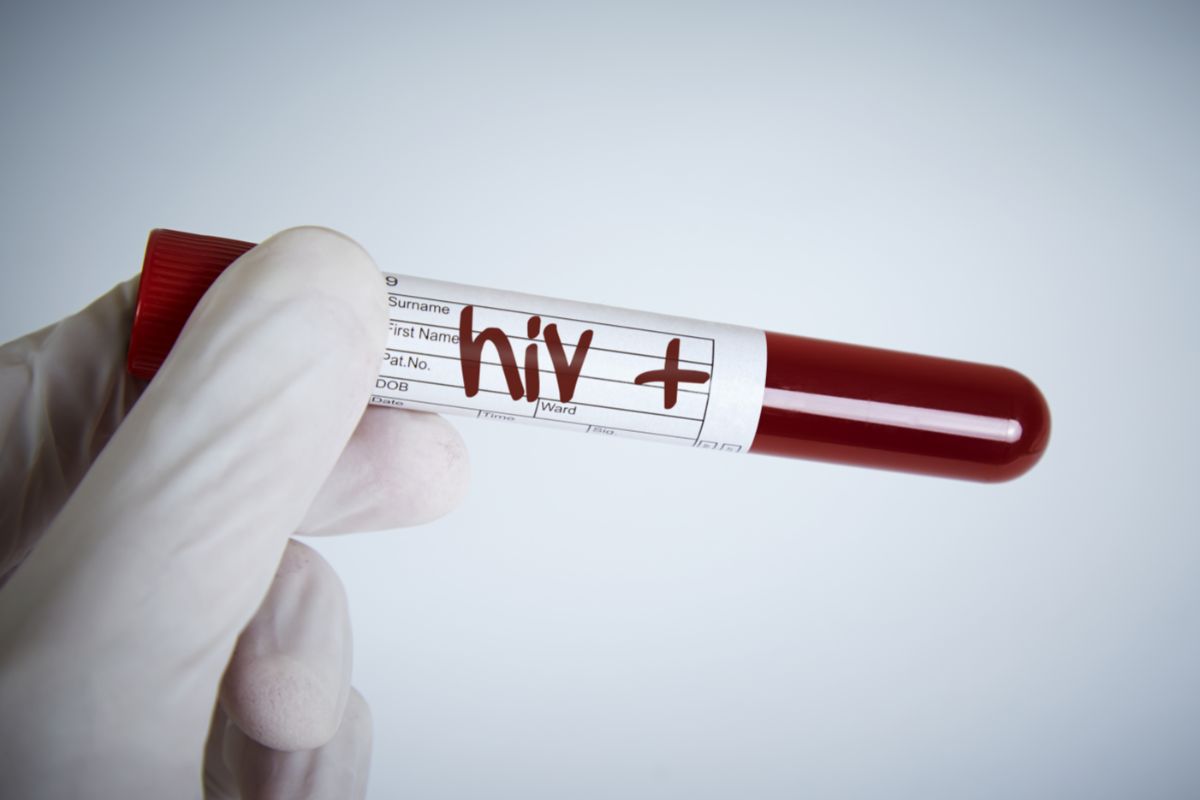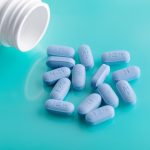Being diagnosed with HIV can be a very lonely and daunting experience, however, while there is no cure for HIV, there are many treatments that are very effective and allow people who are HIV positive to live a long and healthy life.

Emergency HIV Drugs
If you have been exposed to the HIV virus, you can take PEP medication to potentially stop yourself from getting the infection.
Post-Exposure Prophylaxis (PEP) is a medication that must be taken immediately after you have come into contact with HIV.
You must start your course of PEP within 72 hours of the contact, and the longer that you have left before you start the treatment, the higher the risk of becoming infected.
If you have either had sexual contact with someone you know is HIV positive, or you have been in a high-risk situation, then it is a good idea to take PEP.
You can get this treatment from your sexual health clinic or certain hospitals.
HIV Symptoms
Weight Loss
Weight loss is a common symptom of HIV. If you are losing weight very quickly, then this is a sign that your HIV may not be under control.
If you have an advanced case of HIV, you may experience diarrhea, weakness, and fever which results in weight loss.
Treatment For Weight Loss
If you are experiencing this symptom, it is important that you put this weight back on.
You should talk to a dietician to make sure that you have a balanced diet and that you are eating well. You could try some high-protein foods.
If you have diarrhea symptoms, try treating the infections that cause it.
There are also certain medications that help with weight loss that is specifically caused by HIV called Megace and Marinol.
These treatments are all on top of your daily HIV medication.
Skin Problems
It is very common for those who have HIV to have a low immune system which often causes dry and itchy skin.
You may also suffer from skin infections like impetigo or tinea. In order to treat these problems, you should use:
- Antifungal creams
- Steroids
- Moisturizers
If you are experiencing symptoms of molluscum contagiosum, an infection that causes bumps on the skin that are usually flesh-colored, you should seek treatment from a dermatologist.
Shingles are also a common symptom seen in HIV patients. You should see your doctor if you suspect this.
Treatment For Skin Problems
Each skin problem will usually have its own treatment.
Visit your doctor or dermatologist to ensure that you are getting the best treatment for these problems.
You may also be prescribed pain medication or lotions if you need them.
Fever
A fever is a very common symptom of HIV. If you have a high temperature, it indicates that your body is fighting off an infection.
In this case, your doctor may wish to do some tests to find out what is causing the fever to see what the cause is.
Treatment For Fever
If they can find a cause, they will give you treatment options for this specific cause. You will also be able to take ibuprofen to bring down a fever.
Long Lasting Cough

Sometimes, a cough can just be a small problem that goes away on its own.
However, if you have a cough that lasts for a while, it could turn out to be something a bit more serious.
If you have low CD4 counts, then it can develop into pneumonia.
This illness can be deadly and the symptoms include a dry cough, shortness of breath, and tiredness.
Treatment For Long Lasting Cough
If you have these symptoms, head straight to the doctors! If it is pneumonia, you may need to be admitted to the hospital to get the correct treatment.
A cough could also be a sign of tuberculosis which will require you to take a long course of antibiotics.
You should always go to the doctor for a long-lasting cough because it can be an indication that something is wrong.
Night Sweats
A symptom of HIV is night sweats.
This can sometimes be linked to other complications of HIV, and so usually, the doctor must find out why you are experiencing this symptom before they are able to treat it.
Treatment Options
In order to manage the symptoms of night sweats, you should ensure that you are sleeping in a cool bedroom.
As well as this, use moisture-absorbing pajamas for your comfort.
If this is a side effect of another illness, such as TB, the doctor will need to treat this before the night sweats subside.
Mouth Problems
People who have HIV often have sores and ulcers in their mouths. This is often caused by infections such as thrush.
This makes it difficult to chew your food.
Treatment For Mouth Problems
In this case, your doctor may suggest medications to get rid of the infection, such as antibiotics.
They may also suggest painkillers to take away some of the pain.
There are also some soothing mouthwashes available which may help with the immediate discomfort.
Long-Lasting Diarrhea
Diarrhea is a big problem for those who suffer from HIV.
This is because people who suffer from a low immune system often experience infections that can cause diarrhea.
The treatment for this depends on the individual case.
Final Thoughts
While these symptoms of HIV seem very scary, everyone can live a long, healthy, and normal life with HIV if they take their medication correctly.
If you are not taking ART on time, you should begin now before you start to suffer from these symptoms above that are a result of advanced HIV.
Ensure you follow your doctor’s advice, and you will be able to lower the virus in your blood until it is undetectable.
The research that has been done on this illness has changed the lives of people who suffer from it, and it is very important to be aware that this illness is not as dangerous and life-threatening as it has been in the past!
- Understanding Male Reproductive Health: A Complete Guide - February 2, 2025
- Simple Healthy Skin Habits for Radiant Skin - December 6, 2024
- Unlocking the Connection Between Nutrition and Mental Health - December 3, 2024








